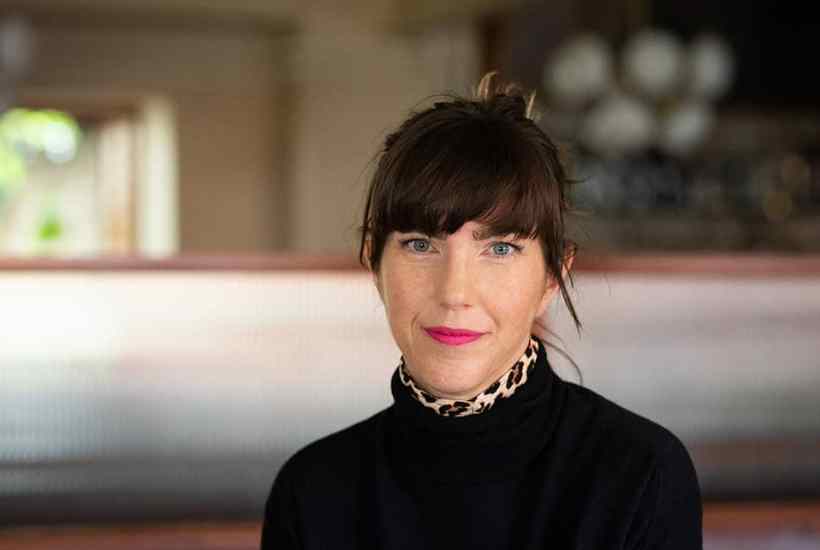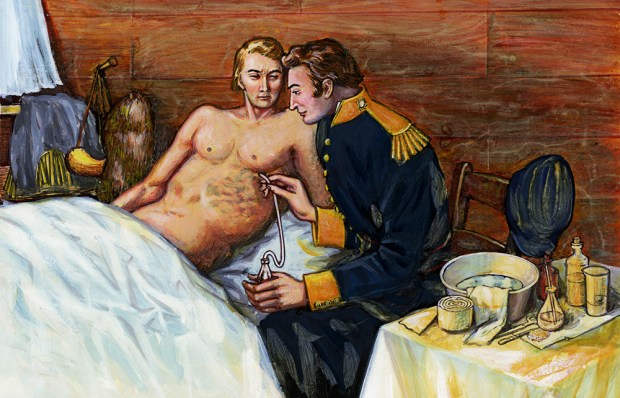Emilie Pine writes about the big things and the little things: friendship, love, fertility, grief; waking, showering, catching the bus. She did so in her startling collection of essays Notes to Self, and she does it again in this, her equally startling debut novel Ruth & Pen. As Ruth (‘Counsellor. Patient. Wife. Wife?’) tells herself in the morning: ‘Swing the wardrobe door open, make a choice. To run. Or to stay. Or just which jacket to wear…’
This short novel takes place in Dublin on Monday 7 October 2019. It’s a significant day for our protagonists, two strangers who briefly cross paths. Ruth, 43, is deciding whether to end her marriage to Aidan, which is falling apart in the wake of four failed attempts at IVF. Pen, 16, is plucking up the courage to declare her love to her best friend Alice. The pair are missing school for an Extinction Rebellion protest and a date – though ‘Alice doesn’t know yet that it’s a date’.
In many ways this is a novel about how we navigate both the world and our inner selves. Pen is ‘not like other girls’ – she hates noise, takes Latin over lunch to avoid the ‘social crush’ of the canteen and has a ‘special sticker’ on her school file. Once a week she sees ‘the woman-therapist’, who told her during her first appointment: ‘Everyone struggles… Everyone is carrying something.’ Her well-meaning mother Claire tells her there is no normal, ‘but Pen will be normal if it kills her’. Ruth herself wants to be fixed and wonders: ‘How unhappy is too unhappy?’
The narrative yo-yos between Ruth and Pen in the close third-person present, breaking off now and then to give a glimpse of what life is like for Alice, Aidan and Claire. Each character feels deeply, and when those feelings are aired it’s at once heart-breaking and life-affirming. ‘Sometimes being “thin-skinned” means you can feel the beautiful things more,’ Pen observes, who, like Pine, draws our attention to the everyday, the overlooked – ‘the way words touch the surface of things, sliding across the world and your tongue. Some words can make you feel loved and soft, and others dent and damage’.
Pine writes with sensitivity, warmth and comic flashes. When a client recounts his daily routine to Ruth and then says ‘I can’t think how boring this is for you’, she simply smiles and says: ‘Please, go on.’
Got something to add? Join the discussion and comment below.
Get 10 issues for just $10
Subscribe to The Spectator Australia today for the next 10 magazine issues, plus full online access, for just $10.
You might disagree with half of it, but you’ll enjoy reading all of it. Try your first month for free, then just $2 a week for the remainder of your first year.














Comments
Don't miss out
Join the conversation with other Spectator Australia readers. Subscribe to leave a comment.
SUBSCRIBEAlready a subscriber? Log in